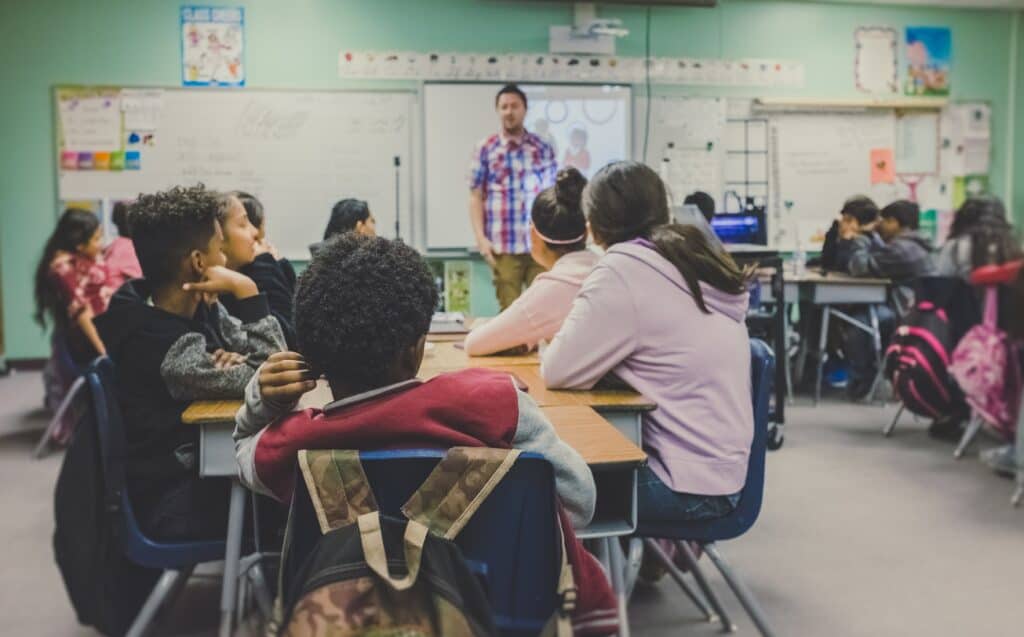Summary
States are working to enhance financial literacy education in schools -- But will the specific needs of immigrant families be served?
Financial literacy education in American high schools has been a low priority for many years, leaving most students without a fundamental understanding of personal finance. This lack of education is particularly concerning for second-generation immigrants, whose families often lack financial security and generational wealth.
A greater focus on personal finance education would empower second-generation immigrants to achieve financial success – and thus help reduce the racial wealth divide. Unfortunately, a mere 22% of American high school graduates have taken a financial education course. Educators in a handful of states have recently recognized this shortcoming and sought to add financial literacy programming to their schools. But much more must be done to increase financial literacy learning opportunities in public high schools nationwide and ensure that second-generation immigrants have the tools they need to succeed financially.
Personal finance education materials in public high schools should accurately reflect the diverse experiences of immigrant communities. By including diverse perspectives and experiences in the curriculum, students from all backgrounds can benefit from a more comprehensive understanding of personal finance. This approach can foster empathy and awareness of the unique financial challenges different communities face, creating a more inclusive learning environment. Ensuring that personal finance education is inclusive of immigrant experiences is a critical step toward achieving greater financial literacy and equity for all students.
Mandatory personal finance classes for high school seniors would prepare young people to pursue their future careers and adapt to their life as young adults. According to the 2019 Experian Consumer Financial Survey, 76% of high school graduates would have preferred their schools put more emphasis on personal finance. While these classes are offered as electives in some schools, oftentimes students don’t have time or space in their schedule to take them, which makes it challenging for them to learn about essential topics such as credit cards, taxes, and student loans. Christian Sherril, the director of partnerships from Next Gen Finance, emphasized the importance of standalone personal finance courses, claiming that “overcrowding of curriculums” in joint courses can make knowledge acquisition difficult.
Second-generation immigrant students would significantly benefit from these mandatory classes, as their parents may not have the knowledge required to pass on. A personal finance survey conducted by the Organization of Economic Cooperation and Development found that Americans with immigrant backgrounds scored 37 points less on average than non-immigrant peers. Additionally, research indicates that individuals who receive personal finance education in high school are more likely to have higher credit scores as adults. These findings emphasize the need for diverse and accessible mandatory financial education within high schools.
Once classes are mandatory, they should also have diverse resources and educators. Second-generation immigrants have family histories and values that differ from Americans, and they may have less exposure to personal finance as a result. A Consumer Financial Protection Bureau survey concluded that immigrants who seek out financial literacy education are obstructed by inaccessible, inaccurate and difficult-to-comprehend learning resources.
Personal finance classes in high school offer students the knowledge to bridge one of the largest gaps between school life and adulthood, give students an outlet to discuss financial concerns or questions, nurture prepared young adults and provide immigrants with essential financial resources. Personal finance education materials in public high schools should accurately reflect the diverse experiences of immigrant communities, ensuring that students from all backgrounds can benefit from a more comprehensive understanding of personal finance. Creating a more inclusive learning environment would also benefit the broader society by helping young adults succeed in an increasingly globalized and diverse economy.
Aditi Agarwal is the co-founder of Investify, a program dedicated to promoting financial literacy in immigrant communities.
Monica Grover is NCRC’s Director of the Executive Office.
Photo by Kenny Eliason on Unsplash



